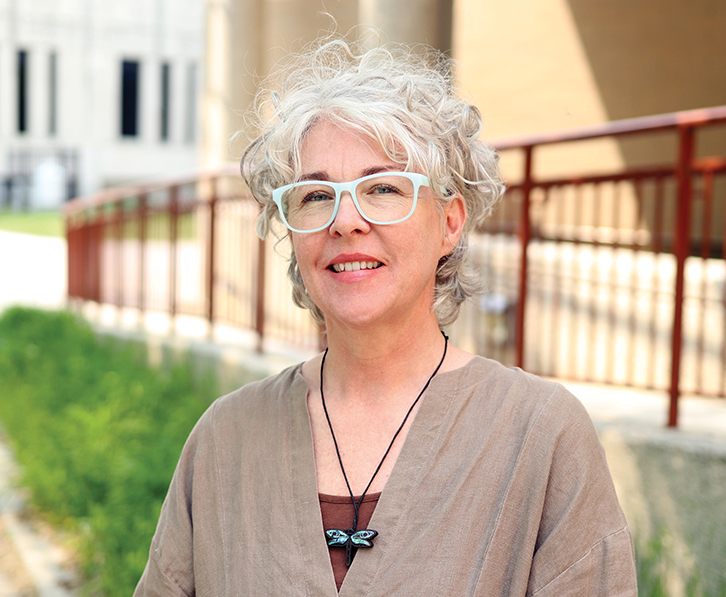
Kellie Thiessen [PhD/14] is the new dean of the College of Nursing.
Thiessen, who was born in Kansas, earned bachelor’s degrees in nursing and arts from Eastern Mennonite University in Virginia before obtaining her master’s in nursing with an emphasis in midwifery at Georgetown University in Washington, D.C.
In 2014, she completed a PhD in applied health sciences at UM and joined the nursing faculty. She was the first midwife in Manitoba to hold a tenure-track academic position.
Thiessen led the development of the UM midwifery program and was its director from 2015 to 2023.
We spoke with her about her vision for the College of Nursing.
What are some of your proudest career accomplishments?
I’ve done a lot of work in rural communities as a nurse and midwife. In a remote part of Alaska, I expanded a child wellness program that involved immunizations, developmental checks, dental and other care. When I arrived, the program was serving five villages. Five years later, we were reaching 48 villages.
Here at UM, from 2017 to 2021, I was the first clinician-scientist funded to participate in a national program that is now called Enhancing Research Impact in Child Health.
I was also a mentee in the Children’s Hospital Research Institute of Manitoba mentorship program for new investigators. The mentorship I received was instrumental in my growth as a research scientist.
Why did you want the job of dean?
I’ve been working in health and education systems for 30 years. I wanted the opportunity to lead at a higher level, and to do so with a different approach.
My research focuses on the health workforce. I believe we address health workforce burnout and challenging team dynamics by starting with healthy team dynamics in our education systems.
In terms of the student experience, what do you want to emphasize?
I want to focus on accountability of learning and a more innovative classroom experience. We have tremendous expertise in the College of Nursing. We will need to take some risks to ensure that we stay relevant to the learners’ needs and the ever-changing health system.
One way we prepare nursing grads for the workforce is by modelling professionalism and integrity at all levels of delivery of our educational programs. We need to train to context, because the health-care system is not going to adapt to us.
What are your priorities for nursing and midwifery research?
I’d like us to integrate more with researchers from across the Rady Faculty of Health Sciences and to explore cross-collaborations with faculties that are not health related, such as engineering and architecture.
Another priority is to provide stronger mentorship to new researchers we bring into the College of Nursing so that we build programs of research that have high impact in our communities – locally, nationally and globally.
What advice do you have for nursing and midwifery students?
Our students bring incredible talent and diversity, so we have a lot to learn from them. I would advise students to come with humility and curiosity to learn about the health-care system, and also to pause and sit with tension that comes with learning about different ways of thinking and doing. We’re all human beings – let’s start with that.
BY RADYUM STAFF
